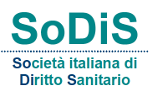Con la sentenza n. 38162/2022 la Cassazione a Sezioni Unite si è pronunciata sullo strumento giuridico attraverso il quale è possibile tutelare il nato da maternità surrogata effettuata all’estero, dopo aver approfondito le ragioni del divieto di surrogazione sancito dall’ordinamento italiano (oltre che dalla maggior parte degli ordinamenti europei), che essa individua nella tutela della dignità della donna. In effetti, la maternità surrogata tratta la madre come semplice «portatrice gestazionale» e quindi la degrada a mero mezzo per la soddisfazione degli scopi procreativi altrui. Pertanto, il divieto ha fondamento costituzionale ed esprime un principio di ordine pubblico internazionale. Di conseguenza, l’atto di nascita straniero o la sentenza straniera non possono essere riconosciuti in Italia per la parte in cui attribuiscono la genitorialità al soggetto che non ha un legame biologico con il figlio. Secondo la Suprema Corte, il modo più appropriato per tutelare il minore è fare ricorso all’adozione in casi particolari. Il saggio, dopo aver condiviso l’idea secondo la quale la maternità surrogata in tutte le sue forme lede la dignità della donna e aver sottolineato che essalede contemporaneamente la salute della donna e la dignità del nascituro e del neonato (poiché tratta il figlio come prodotto del lavoro del corpo della donna e come oggetto di consegna), si sofferma sull’alternativa tra trascrizione integrale dell’atto di nascita e adozione in casi particolari e discute quale delle due sia quella meno contrastante con i principi generali del sistema. Anche se l’applicazione dell’adozione in casi particolari al convivente (eterosessuale o omosessuale) del genitore biologico richiederebbe un esplicito intervento legislativo, questa opzione appare meno dirompente dell’altra, che vanifica l’adozione piena ed è contraddittoria rispetto alla scelta dell’ordinamento di consentire la contestazione della maternità in caso di supposizione di parto.
In the judgement no. 38162/2022 the Supreme Court of Cassation, in its maximum composition (“Sezioni Unite”), ruled the matter of the legal instrument through which it is possible to protect the child born from surrogacy carried out abroad, after having deepened the reasons for the prohibition of surrogacy established by the Italian legal system (as well as by most European legal systems), identified in the protection of the dignity of the woman. Indeed, surrogacy treats the mother as a simple «gestational carrier» and thus degrades her to a mere means for the satisfaction of other people’s procreative purposes. Therefore, the prohibition has a constitutional foundation and expresses a principle of international public order. Consequently, the foreign birth certificate or the foreign judgement cannot be recognized in Italy limited to the part in which they attribute parenthood to the subject who has not a biological link with the child. According to the Suprem Court, the most appropriate way to protect the child is to apply simple adoption (“adozione in casi particolari”). The essay, after having agreed with the idea according to which surrogacy in all its forms harms the dignity of the woman and having stressed that it harms at the same time the woman’s health and the dignity of the unborn and newborn child (since surrogacy treats the child as a product of the work of the woman’s body and as an object of delivery), focuses on the alternative between full transcription of the birth certificate and simple adoption and discusses which of the two is the one less conflicting with the general principles of the system. Even though the application of simple adoption to the (heterosexual or homosexual) cohabitant of the biological parent would require an explicit legislative provision, this way seems less disruptive than the other one, which frustrates full adoption and is contradictory to the choice of the legal system to allow the contestation of maternity in case of supposition of childbirth.


